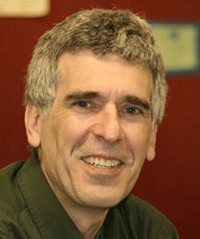Katharine Gun foiled that plan. While scarcely reported in the U.S. media (despite cutting-edge news releases produced by my colleagues at the Institute for Public Accuracy beginning in early March of 2003), the revelations published by the Observer caused huge media coverage across much of the globe -- and sparked outrage in several countries with seats on the Security Council.
"In the rest of the world there was great interest in the fact that American intelligence agencies were interfering with their policies of their representatives in the Security Council," Ellsberg noted. A result was that for some governments on the Security Council at the time, the leak "made it impossible for their representatives to support the U.S. wish to legitimize this clear case of aggression against Iraq. So, the U.S. had to give up its plan to get a supporting vote in the UN."
The U.S. and British governments "went ahead anyway, but without the legitimating precedent of an aggressive war that would have had, I think, many consequences later."
Ellsberg said: "What was most striking then and still to me about this disclosure was that the young woman who looked at this cable coming across her computer in GCHQ acted almost immediately on what she saw was the pursuit of an illegal war by illegal means... I've often been asked, is there anything about the release of the Pentagon Papers on Vietnam that you regret. And my answer is yes, very much. I regret that I didn't put out the top-secret documents available to me in the Pentagon in 1964, years before I actually gave them to the Senate and then to the newspapers. Years of war and years of bombing. It wasn't that I was considering that all that time. I didn't have a precedent to instruct me on that at that point. But in any case, I could have been much more effective in averting that war if I'd acted much sooner."
Katharine Gun "was not dealing only with historical material," Ellsberg emphasizes. She "was acting in a timely fashion very quickly on her right judgment that what she was being asked to participate in was wrong. I salute her. She's my hero. I think she's a model for other whistleblowers. And for a long time I've said to people in her position or my old position in the government: Don't do what I did. Don't wait till the bombs are falling or thousands more have died."
By making her choice, Gun risked two years of imprisonment. In Ellsberg's words, she seemed to be facing "a sure conviction -- except that the government was not willing to have the legality of that war discussed in a courtroom, and in the end dropped the charges."
As this month began, Katharine Gun spoke at a London news conference, co-sponsored by ExposeFacts and RootsAction.org (organizations I'm part of) and hosted by the National Union of Journalists. Speaking alongside her were three other whistleblowers -- Thomas Drake, Matthew Hoh and Jesselyn Radack -- who have emerged as eloquent American truth tellers from the NSA, State Department and Justice Department. The presentations by the four are stunning to watch.
Their initiatives, taken at great personal risk, underscore how we can seize the time to make use of opportunities for forthright actions of conscience. This truth is far from confined to what we call whistleblowing. It's about possibilities in a world where silence is so often consent to what's wrong, and disruption of injustice is imperative for creating a more humane future.
(Note: You can view every article as one long page if you sign up as an Advocate Member, or higher).





